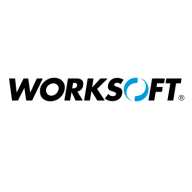

Worksoft Certify and Postman Enterprise both operate within the automation testing space, catering to different aspects of enterprise automation. Based on feature set and target application, Certify appears to have a slight edge for organizations that need extensive application integration across various systems.
Features: Worksoft Certify is renowned for its script-free automation, eliminating the need for manual script creation and supports a wide range of applications like SAP, web-based, and terminal-based systems. It offers a robust framework structure with parameter-driven action steps and integration capabilities with SAP Solution Manager for seamless testing. Additionally, Certify includes a RecordSet feature for efficient data handling and automatic test data processing. Postman Enterprise excels in API testing, known for its ease of use and comprehensive support for data-driven automation. It allows users to create, manage, and share collections of API requests with teams in a collaborative environment. The platform supports various API methods and authentication protocols, enhancing its suitability for extensive API testing. Postman also integrates well with environments and supports automated testing scheduling.
Room for Improvement: Worksoft Certify could enhance its web automation features and simplify script modifications during execution. Users face challenges with large scripts and dynamic web elements, and the tool’s upgrade process requires significant effort. Postman could improve in advanced data-driven testing capabilities and offer more intuitive multi-window functionality. Enhancing the user flow for beginners and refining the interface would make it more accessible. Both solutions would benefit from enhanced user interfaces to ease navigation and functionality discovery.
Ease of Deployment and Customer Service: Worksoft Certify is mainly used on-premises with hybrid cloud setup options but has a nuanced deployment process. Users appreciate the depth of its technical support, though response times could be improved. Postman Enterprise offers flexible deployment across public and private clouds, with responsive customer support. Users seek faster issue resolution but value Postman’s integration options, providing an advantage in deployment flexibility and support responsiveness.
Pricing and ROI: Worksoft Certify involves substantial licensing fees, justified by its comprehensive feature set and significant ROI through reduced manual testing time. It’s considered ideal for large enterprises but may not be cost-effective for smaller businesses. Postman’s open-source nature and affordable enterprise options present a transparent and economical choice for diverse organizations. Certify offers higher ROI via broad application testing, whereas Postman’s cost-effectiveness and zero-cost offerings are attractive for API-focused scenarios with a strong cost-to-value ratio.
A minimum of 50% time is saved when comparing manual to automation.
It brings measurable benefits, and I have observed time-saving, cost-saving, and resource-saving aspects with Worksoft Certify.
Where we used to require twelve to twenty manual resources, we now only need four resources to perform the testing efforts.
I can confirm that Worksoft Certify brings measurable benefits in terms of cost saving, time saving, resource saving, and efficiency improvements in my projects.
I appreciate the ease of using Postman, especially its desktop version, due to the features it offers such as cookie management and environment synchronization.
There is a lot of support available through forums and user groups, which has been sufficient for me.
If the L1 support cannot handle the issues, their L2 support is very good, as technical people come and solve the problems.
Their technical support is responsive, which is good, and their solutions are timely.
If we could have direct contact through platforms like Teams for any immediate queries, it would save the tester's time.
Postman does not have database validation available, which affects its scalability.
This solution is scalable.
We are an enterprise company. It covers companies of all sizes.
I would assess the scalability of Worksoft Certify as around eight to nine, as it is designed for larger teams and complex environments, facilitating efficient testing and deployment.
When I need to add additional resources to scale up, it is easy to do so to run more tests.
I rate it ten out of ten for stability.
I have not experienced any issues or downtimes.
During the development phase, you will face issues, but once it goes to production, you won't face such issues.
Regarding stability, I have not seen any lagging, crashing, or downtime with Worksoft Certify; it is very stable nowadays.
It depends on where this particular tool is installed, including the RAM size or the disk size of that machine.
Throughout my experience, I have not encountered any crashes, performance issues, or stability issues with Worksoft Certify.
One of the primary challenges with Postman is handling authentication issues, especially relating to tokens and passwords.
If they can enhance it to have a database kind of validation like we have in ReadyAPI, it would be better.
Maybe Postman can be a good contender and replicate some features such as more scripting and control over API calls.
Focusing more on AI and its integration with Worksoft would really help enhance our processes.
They need to keep working on the mobile interface, the API part, and they need to improve more on web applications.
Immediate contact to a concerned team or person should be established so that the issue can be fixed at a better pace.
Postman's pricing model includes a basic free version, which is favorable given the Professional enterprise options offered.
Postman is open-source, so the cost is minimal compared to commercial platforms.
Postman is much cheaper than the other tools.
As it is a quality tool, the price is slightly higher, but that is acceptable compared to other tools, especially considering the ROI.
The pricing is minimal and moderate.
I think the pricing for Worksoft Certify is cheaper compared to other tools.
The desktop version's features like cookie management, environment compatibility, security settings, proxy integration, and data synchronization add significant value.
It's easy to navigate because tons of documentation and examples are available.
Postman's collaboration tools, such as version control and team workspaces, are particularly useful when working with teams of three to four people.
Teams who are planning for automation and are still in manual testing can use Worksoft Certify, and significant time and resources will be reduced.
I believe it will reduce cycle time; we can save 30 to 40%, even 40 to 60% regression cycle time, with innovations we have implemented with Worksoft Certify.
It also covers end-to-end testing across different applications, enabling testing of complete business processes, and integrates with other applications such as SAP, Oracle, and Salesforce.
| Product | Market Share (%) |
|---|---|
| Postman Enterprise | 9.9% |
| Worksoft Certify | 8.9% |
| Other | 81.2% |

| Company Size | Count |
|---|---|
| Small Business | 17 |
| Midsize Enterprise | 9 |
| Large Enterprise | 41 |
| Company Size | Count |
|---|---|
| Small Business | 11 |
| Midsize Enterprise | 6 |
| Large Enterprise | 64 |
Postman Enterprise provides API testing capabilities with features like automation, integration, and shared environments, enhancing efficiency for REST and SOAP APIs. Teams benefit from its intuitive interface and support for automation and scripting.
Postman Enterprise is designed for API testing, supporting REST and SOAP APIs to enhance manual and automated testing. It offers endpoint validation, unit and integration testing, and data-driven testing. This platform is valued for its easy setup, flexibility in automation, and scripting, enabling collaborations through shared collections and generating reports. However, users find room for improvement in automation, integration with platforms, SOAP API testing, and collection management.
What are the key features of Postman Enterprise?In industries relying on API development, Postman Enterprise aids in creating robust testing environments. Whether technology, finance, or healthcare, teams leverage its data-driven testing capability and collaboration features for comprehensive and accurate testing outcomes.
Worksoft Certify offers codeless automation for efficient test scripting by non-programmers. It integrates with SAP, supports multiple interfaces, and ensures seamless end-to-end testing, facilitating time savings and streamlined operations.
Worksoft Certify stands out for its unique codeless automation capabilities, enabling users without programming skills to easily create automated test scripts. Its Capture feature effortlessly records user actions, accelerating test development. Integration with SAP systems and support across various interfaces make it highly versatile. The tool's architecture allows for easy script maintenance and decouples scripts from data, speeding up testing processes while minimizing manual effort. Although it's known for excellence in automating SAP applications, there is room for improvement in areas like web and mobile integration, UI enhancements, and support responsiveness.
What are the key features of Worksoft Certify?In industries relying on SAP and ERP systems, Worksoft Certify serves as a valuable tool for automating regression and integration testing. Organizations benefit from reduced manual testing effort and faster project delivery times. It's extensively utilized in sectors requiring large-scale SAP deployment and cloud application integration, making it integral in streamlining business operations.
We monitor all API Testing Tools reviews to prevent fraudulent reviews and keep review quality high. We do not post reviews by company employees or direct competitors. We validate each review for authenticity via cross-reference with LinkedIn, and personal follow-up with the reviewer when necessary.